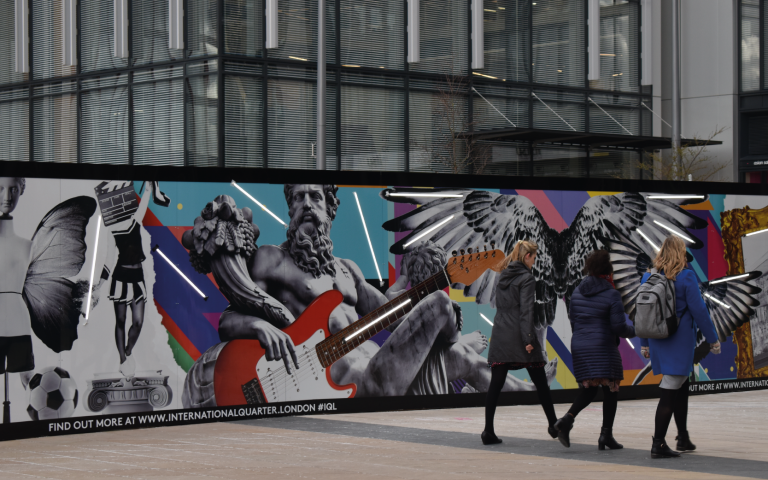Olympic Legacy Conference: Call for Contributions
26 April 2022
What are the legacies and lessons of London 2012? Interrogating a decade of ‘Olympic Regeneration’ in east London

2022 marks the 10th anniversary of the London 2012 Olympic Games.
The Bartlett’s UCL Urban Laboratory and Institute for Global Prosperity (IGP) in collaboration with the University of East London, Cardiff University (Welsh School of Architecture) and Oxford Brookes University, are organising a conference on Monday 12th and Tuesday 13th September 2022 at venues in and around the Queen Elizabeth Olympic Park, London E20, to interrogate and critically reflect on London’s Olympic and Paralympic legacy in the post-games period, from social and spatial justice perspectives.
Call for contributions
The programme for the conference events will be organised around, and inclusive of, a range of formats, from research papers and presentations, to film, storytelling and visual media, and question and answer style sessions. Conference attendance is free of charge, and for those unable to attend in person there will be an opportunity to make an online contribution.
Submit your proposal via the online form.
We invite prospective participants to submit proposals for contributions in a variety of formats, e.g., visual/textual/performance-led etc. Deadline Tuesday 17th May, 12 noon (BST). For further information and any queries, please contact: Penny Bernstock on p.bernstock@ucl.ac.uk
Types of Contributions:
Contributions from community-based researchers, civil society organisations, policy researchers, professional urbanists, and creative practitioners, as well as academics from different disciplines and at various career stages, are strongly encouraged in response to, but not limited to, the following themes:
How have Legacy rhetoric and policies evolved over the last decade? Examples may include legacy commitments, or concepts of inclusive regeneration and convergence.
How have the ‘gains’ from London 2012 regeneration been distributed socially, spatially and economically?
Whose legacy stories are heard and whose are not heard?
What are the practical and transferable lessons for future regeneration policies, practice, and scholarship in the UK including the levelling-up agenda, as well as in other Olympic host cities including Paris 2024?
Can sports-led mega-events and culture-led regeneration be galvanised for the public good?
How can universities contribute to inclusive regeneration/good growth in areas with high levels of deprivation such as East London?
How do we situate legacy in the context of longer processes of social, economic, and physical transformation in east London, including the impact of the COVID-19 pandemic?
What does legacy look, sound and feel like in 2022?
Conference goals
Following a decade of planned regeneration, it is our intention to analyse its effects in the context of longer processes of social, economic, and physical transformation in east London over the last 40 years and explore the changing urban political imaginaries and policy agendas that have shaped approaches to regeneration practice and research during that time. The goals are:
- to critically analyse regeneration policies, impacts, and research in east London before and after the Olympics, foregrounding a variety of voices and perspectives on transformative processes from the redevelopment of London’s Docklands in the 1990s to the various phases of Olympic regeneration, and plans for the future redevelopment of Silvertown and the Royal Docks.
- to identify evidence-based lessons relevant to future urban planning and regeneration in the UK including the levelling up agenda, and other Olympic host cities including Paris 2024.
Conference Steering Group
Penny Bernstock, Co-Chair, Olympic Strategy Group TELCO; UCL IGP (The Bartlett)
Sue Brownill, Oxford Brookes University, School of the Built Environment
Juliet Davis, Cardiff University, Welsh School of Architecture
Briony Fleming UCL East
Clare Melhuish UCL Urban Laboratory (The Bartlett)
Anna Minton UEL, Department of Architecture
Saffron Woodcraft UCL IGP (The Bartlett)
Find out more about the IGPs work in London on the London Prosperity Board & PROCOL UK (Prosperity Co-Lab UK) websites.
Image Credit: Olympic Village London, Patricia Gabalova, 2020
 Close
Close

